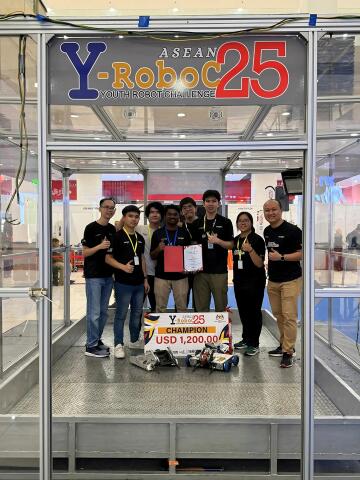WHAT IS AUTOMOTIVE ENGINEERING?
Are you constantly keeping up with the latest car trends? Have you ever wondered what goes into making a car? An automotive engineering career might be for you!

Automotive engineering covers the elements that are involved in creating an automobile such as design, manufacturing, distribution and sales. It is a specialised branch of mechanical engineering that looks into automotive engines, transmission, braking systems, comfort and safety, among others. Besides cars and motorcycles, automotive engineers also work with other land vehicles such as lorries, trucks, buses and trains.
What Do Automotive Engineers Do?
The three main areas of automotive engineering are design & development, manufacturing & production, and quality & cost. There are engineers who are responsible for each stage of the automotive production process. In addition, there are engineers who will work on the aesthetics, technical performance and electronics in different types of vehicles. Therefore, the tasks of an automotive engineer will vary depending on the area of specialisation.
Some general tasks of an automotive engineer include developing and implementing test procedures, sourcing the best materials to create parts and building component prototypes for testing. Before the start of a project, automotive engineers are involved in negotiating budgets, timescales and specifications with clients and suppliers. They also need to investigate and solve problems that emerge in the production process, interpret and analyse data, as well as make improvements based on customer feedback.
Subjects in an Automotive Engineering Course
There are a number of higher education institutions that offer diploma and degree programmes in automotive engineering.
A Diploma in Automotive Engineering typically takes two and a half years to complete. The programme will teach fundamental mechanical and automotive knowledge, technical drawing, workshop practice and interpersonal communication. Some of the subjects include Automotive Workshop Technology, Circuit Theory, Engineering Drawing, Automotive Braking System and Workshop Management & Administration.
On the other hand, a Degree in Automotive Engineering has a three-year duration, covering similar subjects as the diploma programme. More specialised subjects in the degree programme are Computer Aided Engineering Application, Thermofluid and Engine, Steering and Suspension System, Project Management, Planning and Control, and Entrepreneurship.
The Skills You Need
To study an automotive engineering course, you need a strong foundation in Science and Mathematics subjects such as algebra, geometry, trigonometry and pre-calculus, physics and chemistry. Computer skills are important as well when it comes using computer aided design and equipment.
As automotive engineers usually work in a team, it is imperative to be able to work with others effectively. Besides that, other useful skills are attention to detail, problem-solving skills, commercial awareness and passion for the automotive industry.
Job Opportunities
Other than vehicle manufacturers, automotive engineering graduates can find jobs at tyre manufacturers, specialist vehicle design companies, research laboratories, motor sport teams, oil and fuel companies, suppliers and car service centres. Diploma holders may apply for Assistant Engineer, Technician and Supervisor positions. On the other hand, degree holders can become Automotive Engineers and Automotive Technologists.
Graduates will have no problem finding jobs as automotive engineering qualifications are sought after by many industries. Automotive engineers help create the best vehicles possible that will improve transportation as whole to get people from one place to another in a better and safer manner.
Advices





News from Institutions


















